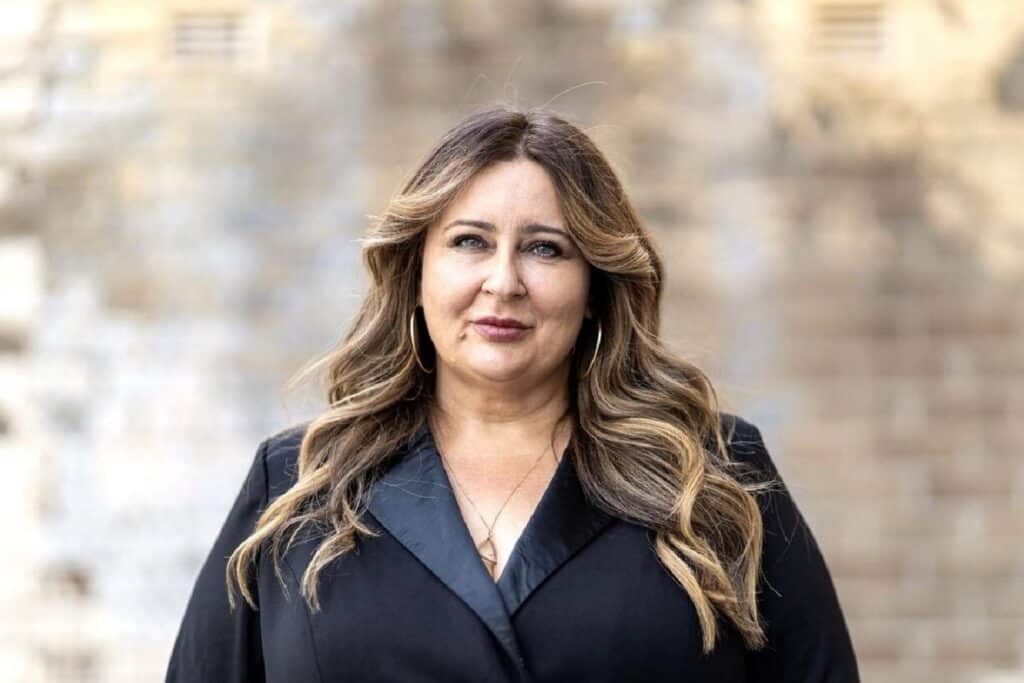Ashlee Donohue has been incredibly open about her personal experience with violence, having survived an abusive relationship with her children’s father, and then navigating her son breaching an AVO against his own partner. She’s found the strength to persevere and drive to change systems that are broken.
“My advocacy started with my own healing,” Donohue tells Women’s Agenda’s on the It Takes Boobs podcast, a conversations initiative in partnership with Stella Insurance.
A proud Aboriginal woman from the Dunghutti nation, Donohue was born and raised in Kempsey, NSW. She’s an author, educator and advocate for topics specifically surrounding anti-violence, anti- racism and Aboriginal women and has created a platform to share lived experiences, as well as a safe place for many Aboriginal women.
Currently, Donohue is the CEO of Mudgin-Gal Aboriginal Women’s Centre, sits on the City of Sydney’s Aboriginal and Torres Strait Islander Advisory panel and DVNSW Aboriginal and Torres Strait Islander Advisory Committee.
When it comes to domestic violence situations, Donohue is clear on where her line is drawn, and this, she says, is key.
“I’ve shown that by supporting my son’s ex-partner,” she says. “I supported her. He’s my son, but I’m not going to move the line of where I stand.”
“My line is drawn and it’s drawn deeply and firmly and I will not move it for anyone. Not even my own child. And I think that’s the issue in this space– until it happens to you or you know somebody involved in domestic violence, everyone will say ‘I’ve got zero tolerance to violence’, until they have to deal with it and then that line moves.”
“And we can’t do that. We have to end staunchly and it has to start with us.”
Donohue adamantly believes everyone has the capacity to draw the line against domestic violence and have zero tolerance for it. She also says it’s men who really need to take the lead on this issue, as they are the main perpetrators of violence against women.
“Domestic violence– you know, it’s everyone’s business but men have to really take the lead role in reducing or eliminating violence because the majority of perpetrators are men. It has to come from the top down,” says Donohue.
While men are the main perpetrators, it’s Aboriginal women who fare the worst when it comes to violence. They’re 34 times more likely to become victims of violence than white women.
Having worked in the anti-violence space for over 20 years now, Donohue says the answer to stomping out this violence is through prevention– part of which includes recognition that Australia was built on violence and deception against Aboriginal women during colonisation .
“We start by telling the truth about the beginning of Australia- that it’s a racist system,” she says.
“Doesn’t matter how rich you are or what god you worship, it happens in every single town and city in Australia– in the world– but in Australia, Aboriginal women, who are less than 2 per cent of the population, sit in the highest percentage of all things violence.”
“It’s systems, it’s organisations in place that are violent and racist towards Aboriginal women because they don’t treat Aboriginal women equal in this country.”
Far too often, women’s stories of resilience and leadership go untold. And we know that so often, it’s women at the forefront of the brave push for progress. With this new Women’s Agenda podcast series, ‘It Takes Boobs’, supported by Stella Insurance, we’re challenging the typical sexist trope of it “taking balls” to get big things done.


